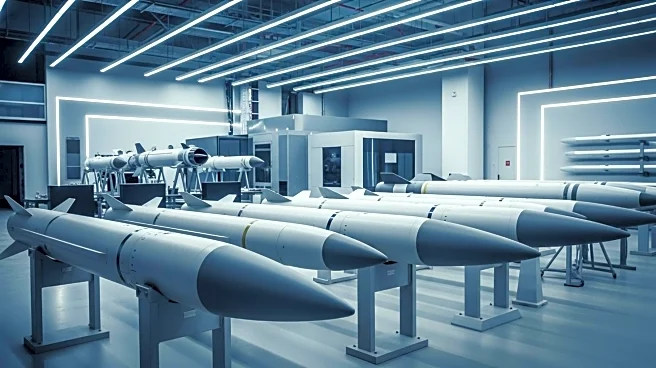What's Happening?
North Korea is enhancing its arms capabilities through significant manufacturing gains, focusing on automated production processes. This development includes the modernization of conventional weapon systems and the integration of advanced technologies such as unmanned systems and artificial intelligence. Despite international sanctions, North Korea's defense industry is benefiting from technology transfers, particularly from Russia, which has begun openly cooperating with Pyongyang. These advancements are enabling North Korea to expand its missile-based nuclear deterrent and conventional military forces.
Why It's Important?
North Korea's accelerated arms buildup poses a threat to regional stability and global security. The integration of advanced technologies into its military capabilities could enhance its offensive and defensive operations, challenging international efforts to contain its nuclear ambitions. The cooperation between North Korea and Russia, despite UN sanctions, highlights the complexities of enforcing international agreements and the potential for geopolitical shifts. This situation could lead to increased tensions in the Asia-Pacific region and necessitate a reevaluation of security strategies by neighboring countries and global powers.
What's Next?
The international community may need to strengthen enforcement of existing sanctions and explore new diplomatic avenues to address North Korea's military advancements. Increased collaboration among global powers, including the U.S., South Korea, and Japan, could be necessary to counteract North Korea's growing capabilities. Monitoring and intelligence efforts will be crucial in assessing the impact of these developments and preventing potential conflicts.











